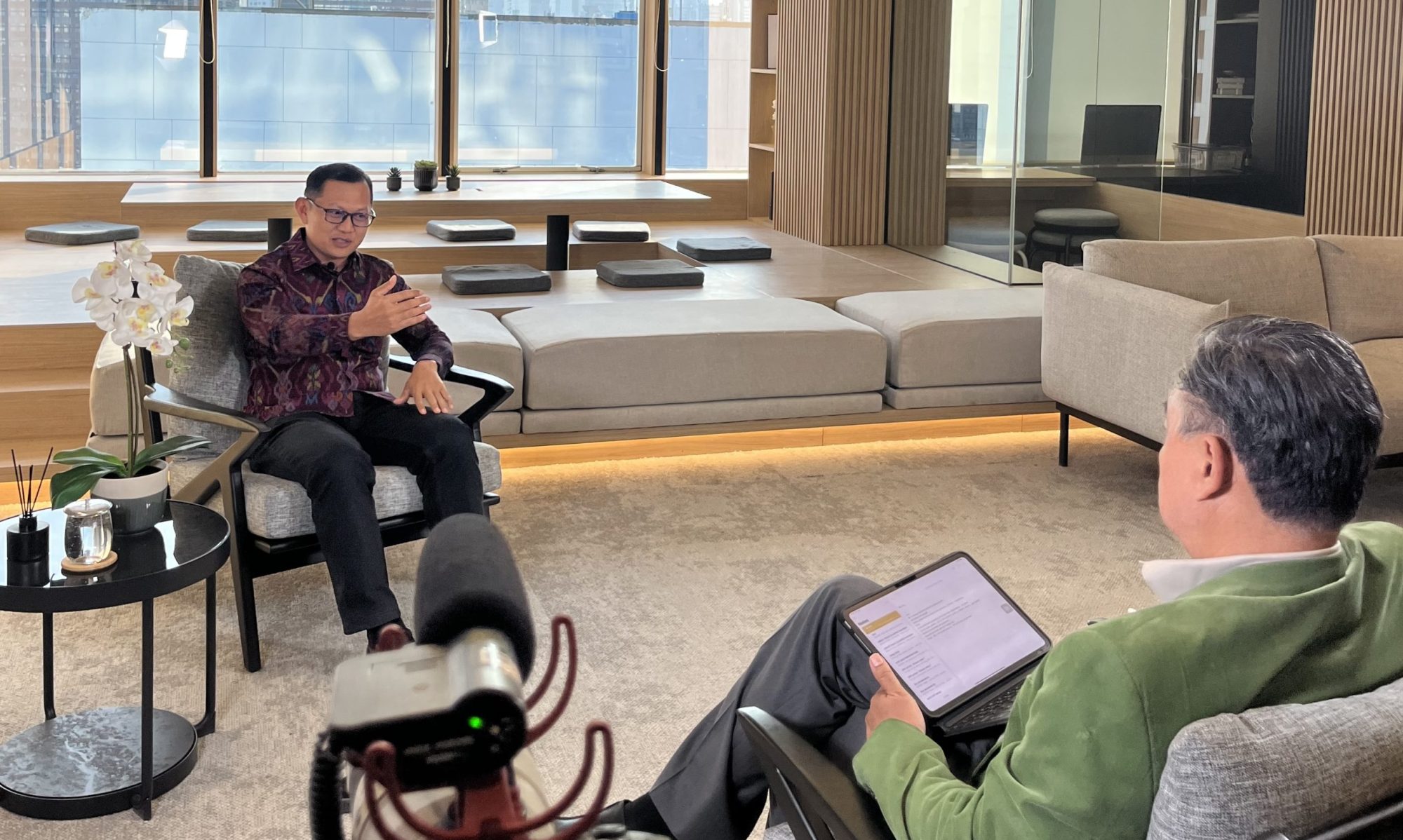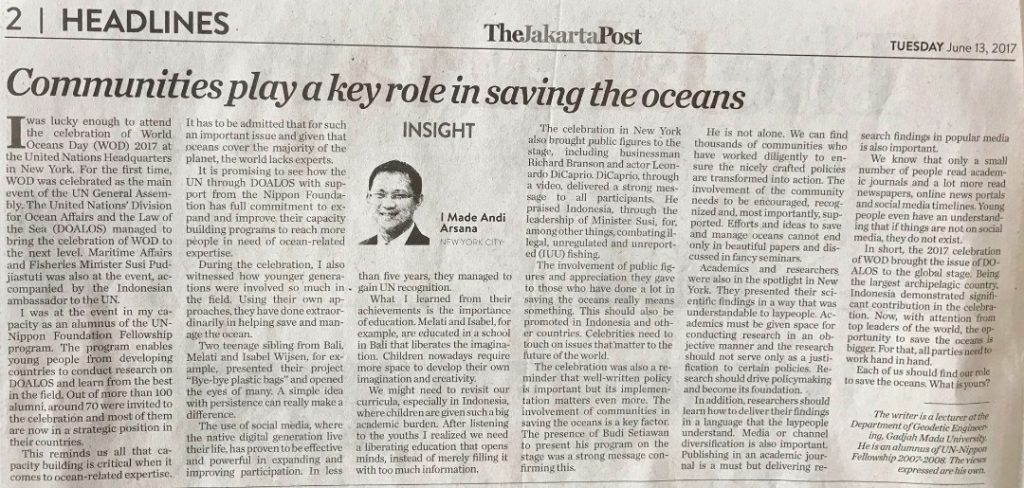I Made Andi Arsana
New York City
Headline | The Jakarta Post | 13 June 2017
I was lucky enough to attend the celebration of World Oceans Day (WOD) 2017 at the United Nations Headquarters in New York. For the first time, WOD was celebrated as the main event of the UN General Assembly. The United Nations’ Division for Ocean Affairs and the Law of the Sea (DOALOS) managed to bring the celebration of WOD to the next level. Maritime Affairs and Fisheries Minister Susi Pudjiastuti was also at the event, accompanied by the Indonesian ambassador to the UN.
I was at the event in my capacity as an alumnus of the UN-Nippon Foundation Fellowship program. The program enables young people from developing countries to conduct research on DOALOS and learn from the best in the field. Out of more than 100 alumni, around 70 were invited to the celebration and most of them are now in a strategic position in their countries. This reminds us all that capacity building is critical when it comes to ocean-related expertise. It has to be admitted that for such an important issue and given that oceans cover the majority of the planet, the world lacks experts. It is promising to see how the UN through DOALOS with support from the Nippon Foundation has full commitment to expand and improve their capacity building programs to reach more people in need of ocean-related expertise.
During the celebration, I also witnessed how younger generations were involved so much in the field. Using their own approaches, they have done extraordinarily in helping save and manage the ocean. Two sibling teenagers from Bali, Melati and Isabel Wijsen, for example, presented their project “Bye-bye plastic bags” and opened the eyes of many. A simple idea with persistence can really make a difference. The use of social media, where the native digital generation live their life, has proven to be effective and powerful in expanding and improving participation. In only less than five years, they managed to gain UN recognition.
There were some others from the US, Netherlands, Thailand and other countries who have done extraordinarily. What I learned from their achievements is the importance of education. Melati and Isabel, for example, are educated in a school in Bali that liberates imagination. Children nowadays require more space to develop their own imagination and creativity. We might need to revisit our curricula, especially in Indonesia, where children are given such a big academic burden. After listening to the youths I realized we need a liberating education that opens minds, instead of merely filling it with too much information.
The celebration in New York also brought public figures on stage, including businessman Richard Branson and actor Leonardo DiCaprio. DiCaprio, through a video, delivered a strong message to all participants. He praised Indonesia, through the leadership of Minister Susi, for, among other things, combating illegal, unregulated and unreported (IUU) fishing. The involvement of public figures and appreciation they gave to those who have done a lot in saving the oceans really means something. This should also be promoted in Indonesia and other countries. Celebrities need to touch on issues that matter to the future of the world.
The celebration was also a reminder that a well-written policy is important but its implementation matters even more. The involvement of communities in saving the oceans is a key factor. The presence of Budi Setiawan to present his program on the stage was a strong message confirming this. He is not alone. We can find thousands of communities who have worked diligently to ensure the nicely crafted policies are transformed into actions. The involvement of the community needs to be encouraged, recognized and, most importantly, supported. Efforts and ideas to save and manage oceans cannot end only in beautiful papers and discussed in fancy seminars.
Academia and researchers were also in the spotlight in New York. They presented their scientific findings in such a way that was understandable to laymen. Academia must be given space for conducting research in an objective manner and the research should not serve only as a justification to certain policies. Research should drive policymaking and become its foundation.
In addition, researchers should learn how to deliver their findings in a language that the laymen understand. Media or channel diversification is also important. Publishing in an academic journal is a must but delivering research findings in popular media is also important. We know that only a small number of people read academic journals and a lot more read newspapers, online news portals and social media timelines. Young people even have an understanding that if things are not on social media, they do not exist. This is a challenge to academia and researchers.
In short, the 2017 celebration of WOD brought the issue of DOALOS to the global stage. Being the largest archipelagic country, Indonesia demonstrated significant contribution in the celebration. Now, with attention from top leaders of the world, the opportunity to save the oceans is bigger. For that, all parties need to work hand in hand. Each of us should find our role to save the oceans. What is yours?
I Made Andi Arsana is a lecturer at the Department of Geodetic Engineering, Gadjah Mada University. He is an alumnus of UN-Nippon Fellowship 2007-2008. The views expressed are his own.

